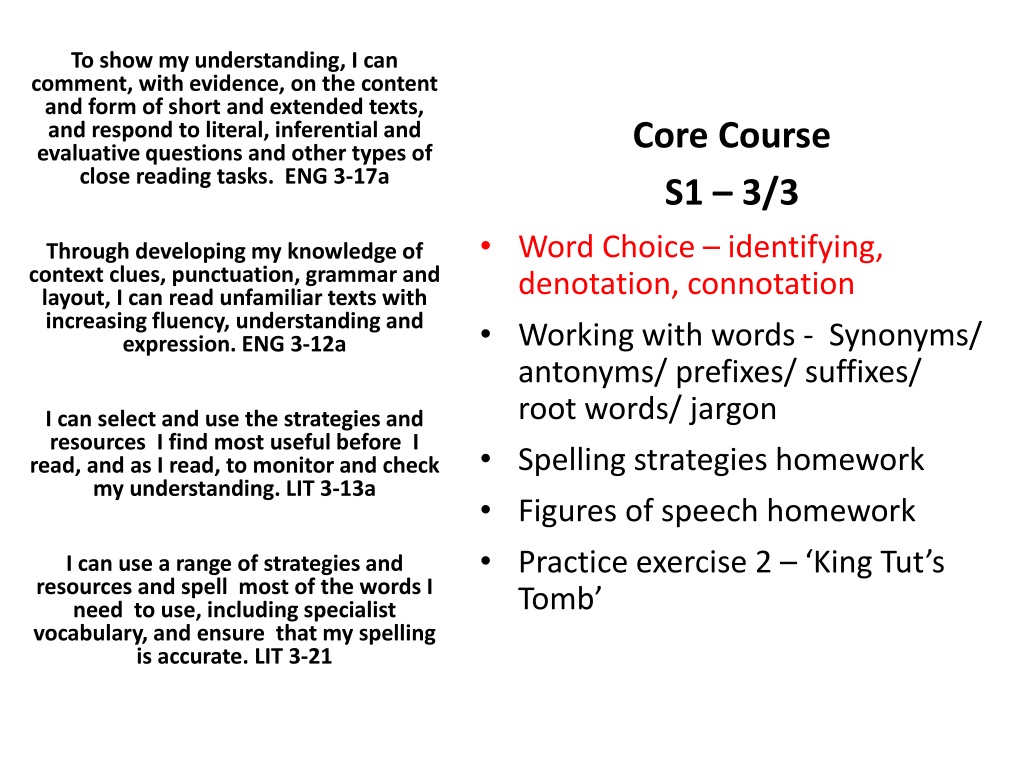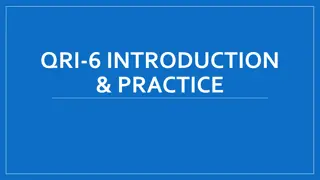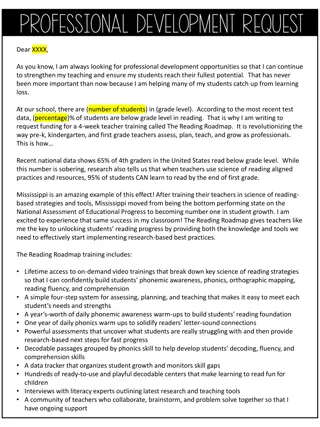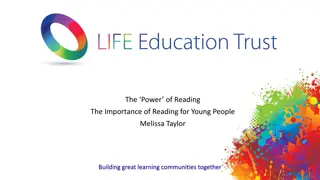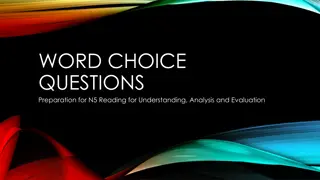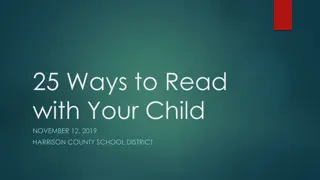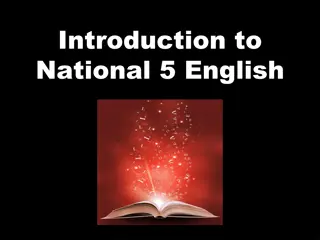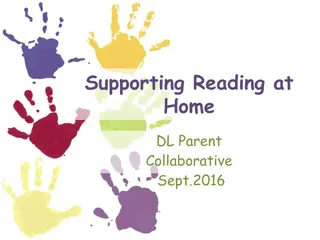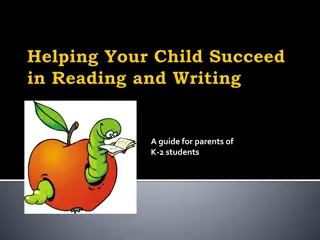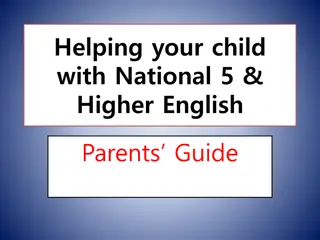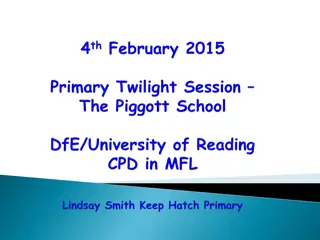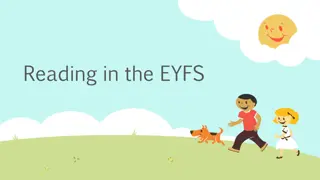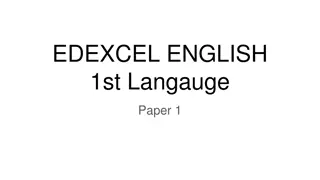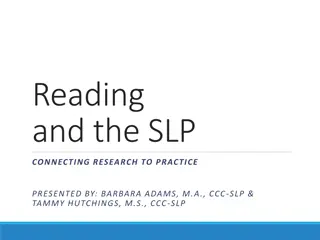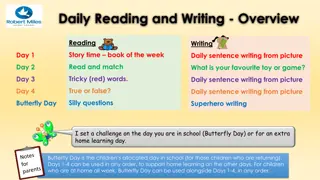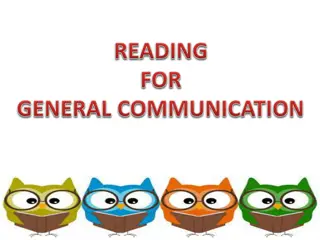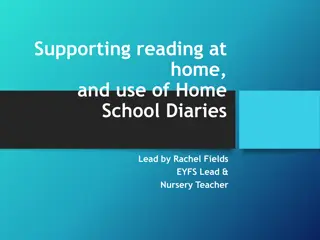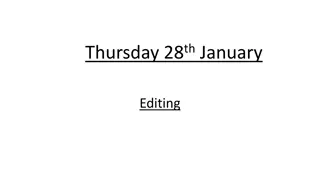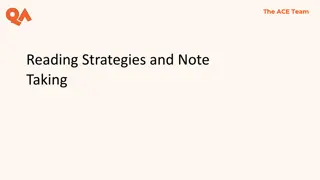Understanding Word Choice in Reading and Writing
Explore the significance of word choice in texts through discussions on synonyms, connotations, and denotations. Understand the impact of vocabulary richness on writing quality and reader perception. Learn to identify denotations and connotations of words in order to grasp their intended meaning. Practice evaluating word choices for their specific effects in literary works.
Download Presentation

Please find below an Image/Link to download the presentation.
The content on the website is provided AS IS for your information and personal use only. It may not be sold, licensed, or shared on other websites without obtaining consent from the author. Download presentation by click this link. If you encounter any issues during the download, it is possible that the publisher has removed the file from their server.
E N D
Presentation Transcript
To show my understanding, I can comment, with evidence, on the content and form of short and extended texts, and respond to literal, inferential and evaluative questions and other types of close reading tasks. ENG 3-17a Core Course S1 3/3 Word Choice identifying, denotation, connotation Working with words - Synonyms/ antonyms/ prefixes/ suffixes/ root words/ jargon Spelling strategies homework Figures of speech homework Practice exercise 2 King Tut s Tomb Through developing my knowledge of context clues, punctuation, grammar and layout, I can read unfamiliar texts with increasing fluency, understanding and expression. ENG 3-12a I can select and use the strategies and resources I find most useful before I read, and as I read, to monitor and check my understanding. LIT 3-13a I can use a range of strategies and resources and spell most of the words I need to use, including specialist vocabulary, and ensure that my spelling is accurate. LIT 3-21
Image result for word clipart Word Choice Word Choice Starter: Discuss in your groups or pairs. Learning Intentions - To explain why authors choose certain words - To identify effective word choice - To define words and explain the effect they have How can you tell when you are reading a well-written text? What has the author done to achieve this? Success Criteria - To comment on a number of examples of author word choice - To complete questions on a passage
Many words in the English language mean basically the same thing. The reasons we have so many, though, is that each one has its own little layers of meaning. For example, have a look at these adjectives which describe something as physically attractive: beautiful gorgeous handsome Pretty Task 1 with partners/in groups What do you think the differences are between these four adjectives?
A writer who has a rich, varied and wide vocabulary is able to make clever decisions about the skill we call word choice. Of course, all the words that a writer uses are chosen in some way, but when we talk about word choice as a technique we mean that certain words are very carefully and deliberately chosen to have a particular effect or impact on the reader, or to suggest a particular meaning.
As a reader and writer yourself, you need to be able to understand what a word means first. This is called being able to identify the denotation. This is the literal meaning of the word what it means in the dictionary.
Let us think about how we go somewhere on our feet. The simplest, most basic word we have for that action is walk . This word means that someone goes somewhere by putting one foot in front of the other, again and again, until they end up where they want to be. Task Two The Denotation (meaning) But there are lots of other verbs that convey (show) similar. Define the following words: a) stroll b) stagger c) strut d) stride
After you have proved that you understand the denotation of the word, you have another important step. You need to explain the connotations of the word. Basically, you have to explain what this word suggests. Task Three The Connotation (suggests) Imagine the words below describing the movement of a boy who is late to class. Explain the connotations: a) stroll b) stagger c) strut d) stride
Task Four Connotation Street Answer the following questions. 1. What does the word gobbled suggest about the way someone eats? 2. What does the word nibbled suggest about the way someone eats. 3. What does the word aroma suggest about a smell? 4. What does the word stink suggest about a smell?
